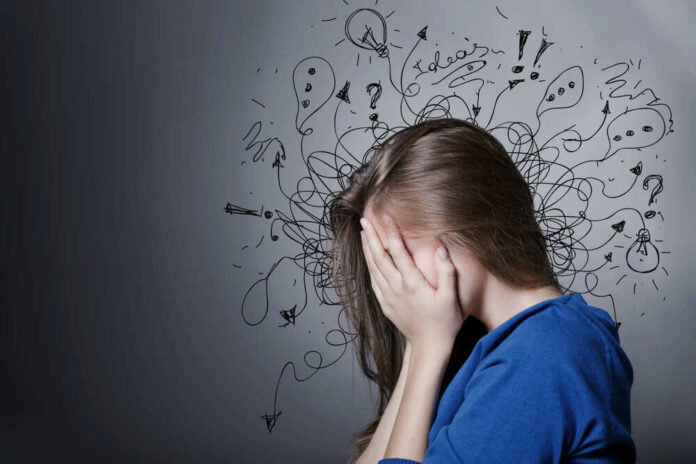
The human experience is filled with a wide array of emotions.
Among them, two of the most concerning—and most common—are anxiety and stress.
They often coexist, creating a complex interplay that can be difficult to disentangle. But distinguishing between these emotional states is crucial for understanding the underlying causes and finding the most effective coping strategies.
Stress – A Response to Demands
Stress is a natural physiological and psychological response to the demands, challenges, or threats we encounter in our daily lives. It can be both positive (eustress) and negative (distress) in nature. Eustress helps us perform better under pressure, while distress can be detrimental to our health and well-being.
The Stress Response
When faced with a stressor, the body activates its stress response, also known as the “fight or flight” response. This involves the release of stress hormones, such as cortisol and adrenaline, which prepare the body for action.
The stress response can manifest as increased heart rate, rapid breathing, and heightened alertness, among other symptoms.
Causes of Stress
Stress can arise from various sources, including work, relationships, financial concerns, and health issues. It is often a result of external events or situations, and its intensity may vary depending on the individual’s perception of the stressor.
Anxiety – A State of Worry and Apprehension
Anxiety is characterized by a persistent state of worry, fear, or unease that may or may not have an identifiable cause. It can be a normal reaction to uncertain or potentially threatening situations, but when it becomes excessive or chronic, it may develop into an anxiety disorder.
The Anxiety Response
The anxiety response shares similarities with the stress response, as both involve the activation of the body’s fight or flight system. However, anxiety is often more pervasive and long-lasting,
even in the absence of an immediate threat. This can lead to a range of physical, cognitive, and emotional symptoms, such as muscle tension, restlessness, and difficulty concentrating.
Anxiety Disorders
When anxiety becomes severe, persistent, or in some way interferes with daily functioning, it may be classified as an anxiety disorder. There are several types of anxiety disorders, including:
- Generalized anxiety disorder
- Social anxiety disorder
- Panic disorder
- Phobias
These disorders can significantly impact a person’s quality of life and may require professional treatment.
Key Differences Between Anxiety and Stress
Anxiety and stress share many common features, so it can be very difficult to distinguish between the two.
Here are some questions you can ask yourself to try to gain some clarity:
- Do your thoughts and emotions center around a specific event or circumstance? Stress is typically linked to a particular situation, while anxiety can manifest even without a direct cause.
- Do your symptoms persist even after the stressor has been removed? If your symptoms continue after the stressor has been resolved, it may indicate anxiety rather than stress.
- Are your worries rational or irrational? Stress usually involves rational concerns about a specific situation, while anxiety can involve irrational fears or excessive worry disproportionate to the situation.
- How long does it last? Stress is usually short-lived, subsiding once the stressor is resolved or removed. Anxiety, however, can be long-lasting, even in the absence of an identifiable cause.
- Is this a response to external pressures and demands? Stress often arises in response to overwhelming demands placed upon us. It is generally rooted in our responsibilities and obligations to others and our own needs.
- Are you avoiding situations or activities due to fear or apprehension? Anxiety often leads to avoidance of situations that provoke fear or worry, while stress may not result in the same degree of avoidance.
- Is your level of worry or distress proportional to the situation? Stress is generally a proportionate response to an external challenge, whereas anxiety can lead to excessive or irrational worry.
Do not diagnose yourself.
If you suspect that you’re struggling with either stress or anxiety, it’s essential to seek support from a mental health professional for guidance and treatment.
Relaxation and Comfort for Both Stress and Anxiety
Regardless of whether you are dealing with stress or anxiety, there are several techniques and practices that can help you relax and find comfort.
Here are some suggestions:
- Mindfulness meditation: Practicing mindfulness can help you focus on the present moment, accept your thoughts and emotions without judgment, and cultivate a sense of calm.
- Deep breathing exercises: Slow, deep breaths can help activate the body’s relaxation response, reducing stress and anxiety symptoms.
- Progressive muscle relaxation: This technique involves tensing and relaxing various muscle groups in a specific order, promoting overall relaxation and stress relief.
- Physical activity: Engaging in regular exercise can help release endorphins, improve mood, and reduce stress and anxiety levels.
- Social support: Connecting with friends, family, or support groups can help you navigate difficult emotions and provide a sense of belonging.
- Adequate sleep: Prioritizing sleep and establishing a consistent sleep schedule can contribute to better mental well-being and resilience against stress and anxiety.
- Creative Art: Engaging in creative activities such as drawing, painting, writing, or music can be a therapeutic outlet for self-expression and uplifting your mood, and it can provide a sense of accomplishment and relaxation.
By incorporating these practices into your daily life, you can promote relaxation, comfort, and mental well-being, whether you are dealing with stress, anxiety, or a combination of both.






















